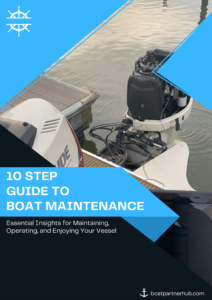Blog
Boat Engine Maintenance 101: Troubleshooting and Preventative Techniques

Smooth Sailing Ahead: Mastering Boat Engine Maintenance for Optimal Performance
Your boat’s engine is the heart that propels you on your nautical adventures. Keeping it in peak condition is essential for a smooth and enjoyable boating experience. Boat engine maintenance involves not only troubleshooting issues but also implementing preventative techniques to ensure reliable performance on the water. In this Boat Engine Maintenance 101 guide, we’ll explore essential troubleshooting tips and proactive measures that will empower you to care for your boat’s engine like a seasoned captain.
1. Regular Engine Inspections: Start with a Thorough Check
Conduct regular inspections of your boat’s engine, both before and after each outing. Look for signs of leaks, wear, or damage, and address any issues promptly.
2. Checking Fluid Levels: Keeping It Well-Oiled
Monitor fluid levels, including engine oil, coolant, and hydraulic fluid. Maintaining proper levels helps optimize engine performance and prevents overheating.
3. Changing Engine Oil: The Lifeblood of Your Engine
Regularly change the engine oil as per the manufacturer’s guidelines. Fresh oil ensures proper lubrication and extends the life of your boat’s engine.
4. Inspecting Belts and Hoses: Avoiding Snags
Check belts and hoses for signs of wear, cracks, or loose connections. Replace worn or damaged components to prevent unexpected breakdowns.
5. Battery Maintenance: Ensuring Reliable Starts
Keep the battery terminals clean and the battery charged. Test the battery regularly and replace it when necessary to ensure reliable engine starts.
6. Cooling System Care: Preventing Overheating
Maintain the cooling system by regularly checking coolant levels and inspecting the water pump impeller for damage. Proper cooling system care prevents engine overheating.
7. Spark Plug Replacement: Igniting Performance
Replace spark plugs as needed to ensure efficient combustion and smooth engine operation.
8. Fuel System Checks: Keeping It Clean
Inspect the fuel system for clogs, leaks, or contaminated fuel. Keep the fuel system clean and use high-quality fuel additives to prevent fuel-related issues.
9. Proper Fuel Storage: Quality Matters
Use fuel stabilizers and store fuel in appropriate containers to prevent fuel degradation and engine problems.
10. Winterizing Your Engine: Protecting from Cold
Before winter sets in, winterize your boat’s engine to safeguard against freezing temperatures. Remove water from the cooling system, change the oil, and protect the engine with antifreeze.
11. Operating at Proper RPM: Avoiding Strain
Avoid over-revving your engine and operate it at the recommended RPM range to prevent unnecessary strain and potential damage.
12. Seeking Professional Maintenance: Expert Touch
Don’t hesitate to seek professional help for more complex engine issues or for routine maintenance tasks that you’re not comfortable handling yourself.
Conclusion
Congratulations! By mastering boat engine maintenance with these troubleshooting and preventative techniques, you’ll ensure that your boat’s engine serves you faithfully on all your aquatic journeys. Regular inspections, fluid checks, and proper care will keep your engine running smoothly, allowing you to explore the waterways with confidence and peace of mind. Embrace your role as a savvy boat owner, and may your engine continue to power you through countless memorable adventures on the water!


